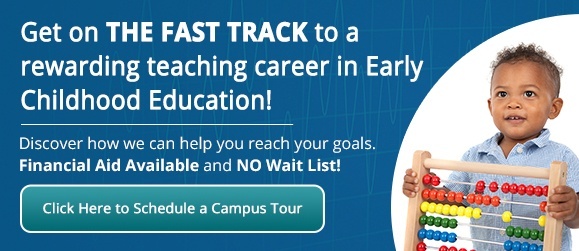Early childhood education is a critical period in a child's development. It’s here where they acquire fundamental skills and behaviors that shape their future. However, early childhood educators often encounter challenging behaviors that can disrupt the learning environment and hinder classroom progress. Addressing and managing these behaviors effectively is essential for creating a positive and inclusive educational experience.

1. Understanding Challenging Behaviors
Before addressing challenging behaviors, it is important to understand their underlying causes. Challenging behaviors can stem from various factors, including communication difficulties, emotional distress, lack of social skills, or environmental factors. Observing and documenting specific behaviors can help identify patterns and triggers, providing insights into the root causes.
2. Establishing a Positive Classroom Environment
Creating a positive classroom environment is a foundational step in managing challenging behaviors. A supportive and nurturing atmosphere fosters a sense of belonging and security for children. Educators can achieve this by setting clear expectations, establishing consistent routines, and promoting positive social interactions. Additionally, providing a variety of engaging activities and materials can help prevent boredom and minimize the likelihood of challenging behaviors.
3. Building Relationships and Communication
Building strong relationships with each child in the classroom is vital for understanding their needs and effectively addressing challenging behaviors. Educators should strive to develop a rapport based on trust, empathy, and open communication. By actively listening to children and acknowledging their feelings, educators can help them express their emotions in a healthy and appropriate manner.

4. Implementing Behavior Management Strategies
Implementing behavior management strategies is a key component of addressing challenging behaviors. Here are some effective approaches:
a. Positive Reinforcement: Encouraging and rewarding positive behaviors can motivate children to repeat them. Verbal praise, stickers, or other small incentives can be used as rewards, reinforcing desirable behaviors.
b. Redirection: When a child engages in challenging behavior, redirecting their attention to a more appropriate activity can help prevent escalation. Offering alternative choices and modeling desired behaviors can guide them towards positive actions.
c. Clear and Consistent Expectations: Establishing clear expectations regarding behavior and consistently enforcing them can create a structured environment. Children should understand the consequences of their actions and how they impact themselves and others.
d. Visual Cues: Visual cues, such as visual schedules and cue cards, can provide children with a clear understanding of expectations and transitions. Visual supports aid in minimizing confusion and anxiety, and that helps students learn self-regulation.
5. Collaborating with Families and Support Services
Collaboration between educators, families, and support services is fundamental in addressing challenging behaviors effectively. By maintaining open lines of communication, educators can gain valuable insights from families about a child's behavior patterns, triggers, and successful strategies used at home. In cases where additional support is required, involving professionals, such as psychologists or therapists, can provide specialized guidance and interventions.
6. Continuous Professional Development
The field of early childhood education is constantly evolving, and as an educator, you’ll want to stay updated with the latest research, strategies, and best practices. Participating in professional development opportunities, attending workshops, and networking with colleagues can enhance educators' knowledge and skills in managing challenging behaviors effectively.
Become a Teacher with Athena Career Academy
Addressing challenging behaviors in early childhood education settings requires a comprehensive approach that considers the individual needs and unique circumstances of each young student. By creating a positive environment in the classroom, building relationships, implementing behavior management strategies, and collaborating with families and support services, early childhood educators can foster a nurturing and inclusive learning environment. Remember, every child is unique, and a patient, understanding, preschool teacher is key to supporting their development and addressing challenging behaviors successfully. If you’re ready to jump into the field of early childhood education, contact Athena Career Academy to learn more about our early childhood education degree program.





